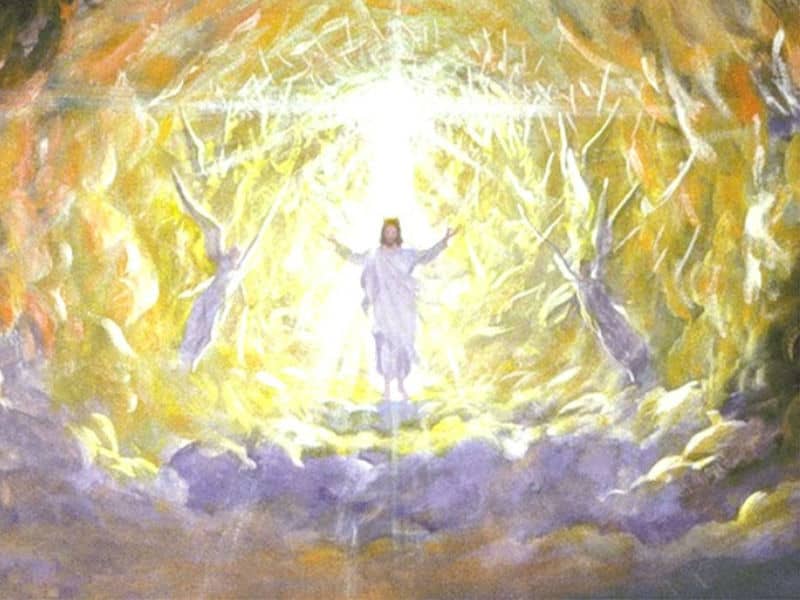But it is not just the secular journalist who broke the story, Judy L. Thomas of the Kansas City Star, who places some of the blame on the Church for its moral doctrines. A number of the Catholic priests she quotes, including at least one bishop, do the same. The Catholic clergy itself, not just the secular press that reports on its doings, seems to have fallen into confusion over what exactly went wrong and who is to blame.
The priests who are dying or have died of this dreadful disease got it by engaging in homosexual acts, which the Church's moral laws forbid. In Thomas's view, this creates a paradox: the Church "teaches compassion and forgiveness but also considers homosexual relations a sin and opposes the modern practice of 'safe sex,'" she writes. Of course, there would be nothing to forgive if homosexual acts were not sinful, and it is difficult to see the relevance of "safe sex"--a euphemism for the use of condoms--to the problem. The danger of disease is not what makes the practice morally wrong, so Catholic seminaries and diocesan offices could hardly be expected to install condom machines in their washrooms.
"I think this speaks to a failure on the part of the church," Auxiliary Bishop Thomas Gumbleton of Detroit told Thomas. "Gay priests and heterosexual priests didn't know how to handle their sexuality, their sexual drive. And so they would handle it in ways that are not healthy." Healthy? Bishop Gumbleton is revealing more than he intended. How did it come about that priests--of all people--did not know what is right and what is wrong in the matter of sexuality? It is a long sad story indeed.
Some years ago, the Catholic Theological Society of America, the professional organization of Catholic academic theologians, commissioned (and ultimately rejected) a book called Human Sexuality, of which it can be said that it waffles on everything but waffling. Absent is any recognition that there are some sexual acts that are simply wrong. In the chapter on homosexuality, the reader is immediately invited to wonder why "we" are so bothered by such activity. It is no longer the deed but the reaction to the deed that is the problem, in the view of the book's authors, and the only reaction that concerns them is condemnation. They deal with homosexuality itself in a completely secular way--as a given of life to be accepted--and any negative judgment of homosexual acts is simply "homophobia," a neologism meant to cover the natural revulsion that unnatural acts invite among most people. What is needed, we are told, is not just the charity and compassion that we owe all our fellow human beings no matter what their sexual inclination, but a mindless softheartedness that smudges our moral judgment of the activity under discussion.
Bishop Gumbleton complained to the The Star's reporter Thomas that "we" were never taught how to be "celibate and gay at the same time, and how to be celibate and heterosexual at the same time." He called this a major failing. But the failure must be traced to the dissenting Catholic theologians of the like who wrote Human Sexuality, many of them teaching in seminaries, who muddied the moral waters on this matter and confused generations of future priests. Added to this were sexual shenanigans countenanced in many seminaries, where a traditional morality older than the church itself was dismissed as rigid and unnecessary.
For decades we have been hearing stories about priestly training and religious houses that would have made Boccaccio blush. And yet a task force formed by the U.S. bishops during the 1980s to look into the seminaries found that everything was just fine. Here indeed was a failure, and by churchmen, who had to make a determined effort not to acquaint themselves with the facts they were supposedly investigating.
With respect to homosexual acts, the hierarchy is cowed by the gay establishment, whose power can scarcely be overestimated. One of the more depressing aspects of official responses to reports of sexual irregularities in the ranks of the clergy, heterosexual as well as homosexual, is that spokesmen for the church typically fall into the idiom of pop psychology (words like "healthy"), without ever mentioning that what is at issue is simply age-old immorality that no one should have needed special instructions to identify.
The chickens have come home to roost, in the form of hundreds of suffering and dying men. All this is an effect of the rebellion among academic theologians that has characterized the post-Vatican II era. The Second Vatican Council ended during the mid-1960s, the decade when secular culture went off the moral rails. In retrospect it is clear that many professional theologians of that time were urging the church to sign onto the sexual revolution that secular society embraced. Well, the Church's teaching remained--and remains--unchanged and increasingly counter-cultural. But all around us now are the victims of this supposed liberation by dissent. They are perishing not because of the church's doctrines on sexuality (which, had they been followed, might have saved their lives), but because a generation of theologians charged with teaching them those doctrines led them profoundly and tragically astray.

